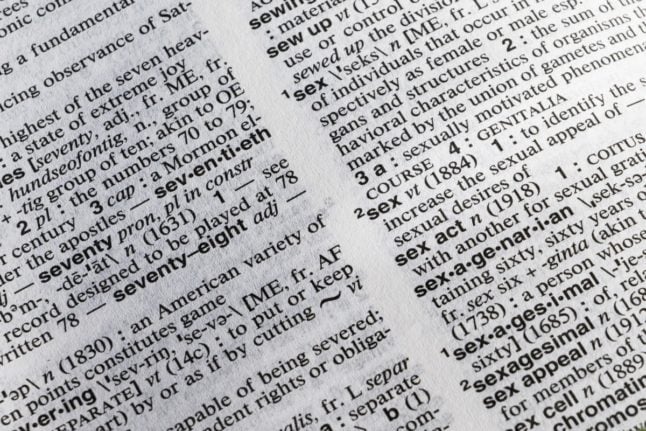The cinema group Lost in Frenchlation runs regular screenings of French films in the capital, with English subtitles to help non-native speakers follow the action. The club meets for drinks before every screening so its also a great way to meet people if you’re new to Paris.
These are the events they have coming up in October.
Friday, October 1st
Serre Moi Fort – Vicky Krieps stars as a woman dealing with her increasing distance from her husband and children, in this mysterious film, which is adapted from a play by Claudine Galea and premiered at Cannes earlier this year.
The screening will take place at the Luminor Hôtel de Ville cinema, just a stone’s throw from the Centre Pompidou, at 8pm. But you can arrive early for drinks at the bar from 7pm, and the film will be followed by a Q&A with director Mathieu Amalric, who is also an actor who has starred in films such as Quantum of Solace.
Tickets are €10 full price, €8 for students and all other concessions, and can be reserved here.
Sunday, October 10th
Eiffel – Having just finished working on the Statue of Liberty, Gustave Eiffel, played by Romain Duris, is tasked with creating a spectacular monument for the 1889 Universal Exposition in Paris. It’s ultimately his love story with Adrienne Bourgès (Emma Mackey) that will inspire him to come up with the idea for the Eiffel Tower.
Lost in Frenchlation will be marking the film’s release with an exclusive premiere screening at 7pm at Club de l’Étoile cinema, after drinks at the cinema bar at 6pm. But before that, they’ve teamed up with Ciné-Balade to offer a two-hour cinema-themed walk around the Trocadéro neighborhood where the Eiffel Tower is located, which begins at 4pm.
Tickets cost €10, or €8 for students and concessions, and can be found here. Tickets for the walking tour cost €20 and must be reserved online here.
Friday, October 15th
Bac Nord – The film everyone’s been talking about. It follows three Marseille cops under pressure to improve results in the city’s northern neighbourhoods, an area with some of the highest crime rates in France. It has simultaneously been praised for its honest portrait of the Republic’s failings, and criticised for playing into the hands of Marine Le Pen, so come and decide for yourself.
The screening will take place at the Luminor Hôtel de Ville cinema.
Friday, October 22nd
Onoda: 10,000 nights in the jungle – Young Japanese soldier Hiroo Onoda is sent to fight on a remote island in the Philippines just as World War II is about to end in this extraordinary portrait of a forgotten soldier. Refusing to believe the war is over, he will carry on fighting until 1974. The film from French director Arthur Harari, which is based on a true story, is in Japanese but will feature English subtitles.
The evening will kick off with drinks at L’Entrepôt cinema bar at 7pm, followed by the movie screening at 8pm. Tickets are available online here, and cost €8.50 full price; €7 for students and all other concessions.
Friday, October 29th
Délicieux – Set in 1789, with the French Revolution on the horizon, a chef who has been let go by his master is inspired, with the help of a young woman, to free himself from his status as a servant and open his own restaurant… the first restaurant in France.
An homage to French gastronomy, the film will be accompanied by movie-themed food, as part of a collaboration with Les Popcorn. Just head to the Luminor Hôtel de Ville cinema.
Full details of Lost in Frenchlation’s events can be found on their website or Facebook page. In France, a health pass is required in order to go to the cinema.



 Please whitelist us to continue reading.
Please whitelist us to continue reading.
Member comments